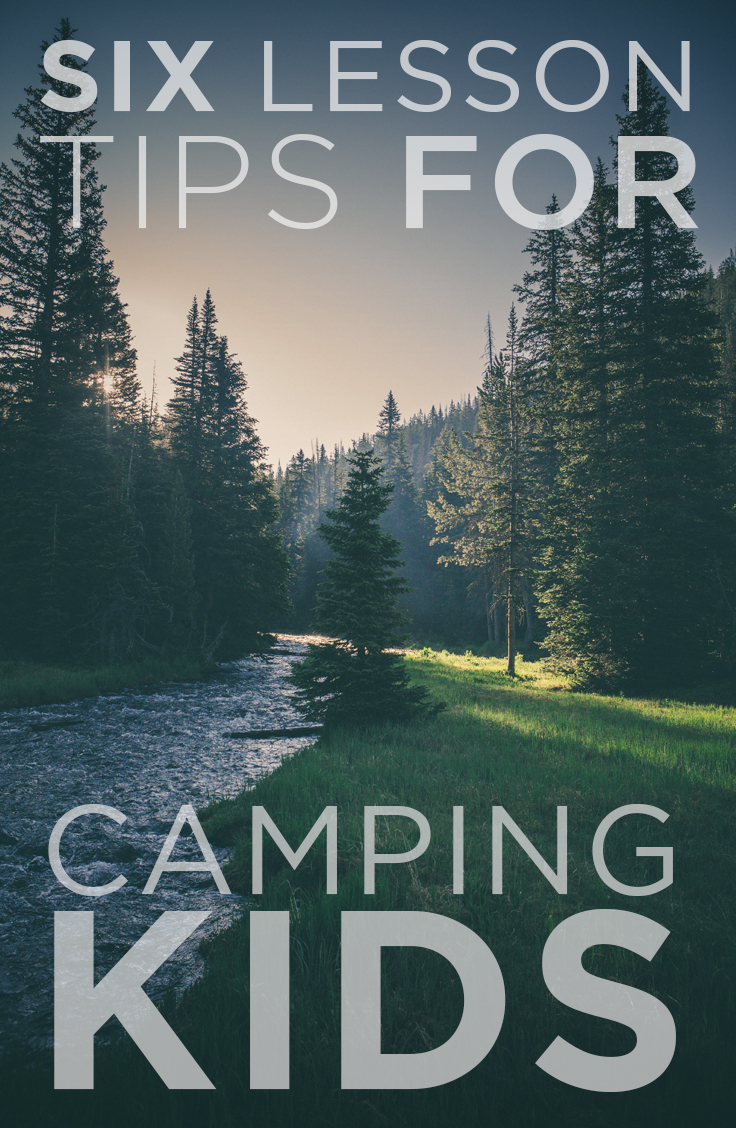 Whether you are camping, hiking, fishing, or even climbing, there is always something to be learned from the great outdoors. And no matter their learning style – whether it be visual, auditory, linguistic, or kinestetic – there’s something for every type when exploring nature.
Whether you are camping, hiking, fishing, or even climbing, there is always something to be learned from the great outdoors. And no matter their learning style – whether it be visual, auditory, linguistic, or kinestetic – there’s something for every type when exploring nature.
There have been multiple studies done about the benefits of experience-based learning. There is no better time to do this than on a family adventure. Book-learning and discussion increase knowledge while interaction and involvement cement permanent education, through ownership.

Here are 6 tips to turning your camping trip into a lasting learning lesson:
Let them pick the project from a list.
- There is something to be said for the motivation of learning through ownership. If we pursue our interests on our own accord, we are far more likely to enjoy the project. We then follow through, learn more than expected, and retain the information.
Let them teach you.
- There is a certain amount of pressure and accountability that comes with the responsibility of teaching someone else how to do something.
- They learn how to keep someone’s interest. This is a social and educational skill that they will learn through teaching that will serve them well for the rest of their lives.
- They learn that there are many creative ways to learn and teach, and they get to decide how to utilize their skills and use what best fits their character.
- They have to know the subject, and they have to be accurate. There is no one grading you when you are teaching. If you are wrong then you have done the person you are teaching a huge disservice, especially if they decide to teach survival training.
Survival Training.
- This form of training is not just about education; it’s about survival. No one can say that they are 100% in control of their own world, because truthfully at any time something horrible could happen that is beyond your control, especially when camping in an environment that you are unfamiliar with.
- Skills like proper water filtration, knowing your sense of direction, and building a basic shelter are necessary in an emergency situation.
Let them explore
- I am somewhat of a helicopter parent, so I say this with reservation, but being outdoors and exploring nature is one of the greatest ways to teach your child independence and confidence. It is a trait that children seldom have.
- Keep an eye on them and give them a safe perimeter, which you have already examined yourself. That way you can reach them quickly if something should happen, and they can explore a designated area safely while still retaining a sense of independence.
Create a project that they can take home with them.
- Nothing brings back memories of a great camping trip more than a souvenir that you make or find yourself. Like a walking stick they carve their name into or a homemade fishing pole that they caught their first wild trout on. Yes, there are still wild trout out there, and their meat is pink. FYI
Keep a journal
- Keeping a journal is a great way to immortalize your memories, ideas, and findings. Not just for your children, but for you as well. Memories are the most fleeting and treasured parts of life. I do whatever I can to cement them into my mind. Years later, you can compare journal entries as a family regarding a specific trip and have fun hearing everyone’s various viewpoints, appreciations, and things each felt were worthy to document.
- Journaling is great for children and teens. It is a great way to help them develop their ideas, feelings, and identity. Thoughts become jumbled and hard to manage until you get them down on paper, and with today’s pressure to use tablets and phones for writing, camping is a great time to sit down and put pen to paper. If you have a young child who cannot write yet, have them sit and draw pictures of what they see and experience and offer to be their scribe.
Get more details in 8 science lessons to learn in the wild